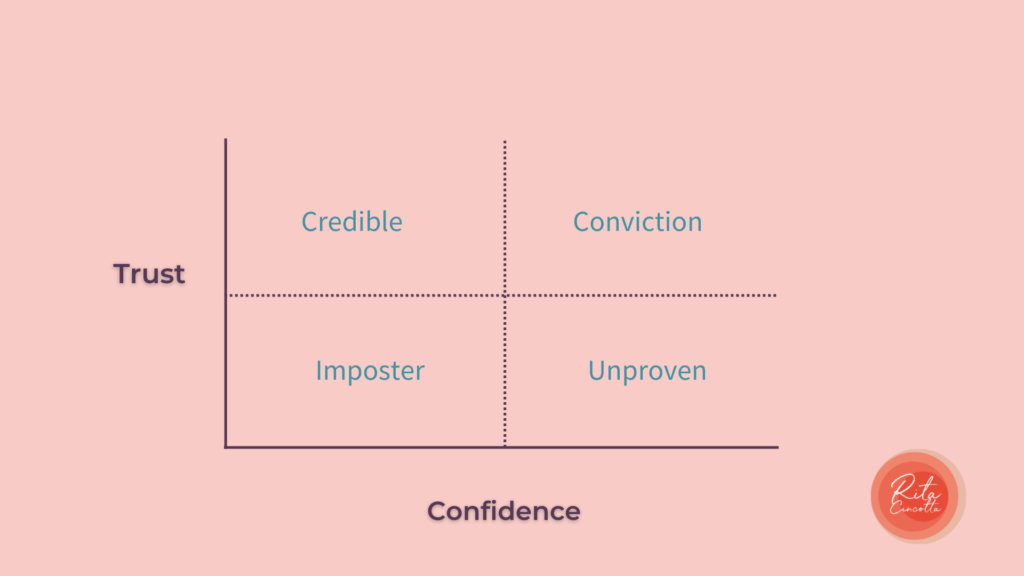As a leader, when you know you are trusted, how does this feel?
Knowing that you are trusted is seldom marked by fanfare or the trust march coming out to salute you. You just know it. It usually occurs over time, and if you feel trusted, you may feel this toward the person, people, or organisation that you feel trusted by. It tends to be reciprocal in nature, but not always.
So now let’s look at confidence. How do you feel when you feel confident? To what extent do others impact your feeling of confidence, either positively or negatively? Do you rely on others to help you to feel confident, or does it come from within?
Trust and confidence share a co-dependence. As one grows, so does the other.
We often seek external validation for trust and internal validation for confidence. The reality is that we need both seen from internal and external perspectives. If we don’t trust ourselves and feel a strong conviction in ourselves and what we offer, we may feel like an imposter or somewhat unproven. With a higher sense of trust within ourselves, we feel conviction. We believe in ourselves and the value we bring. As confidence develops, we are more assured of our value, and others see this too. It can appear effortless, like we have “nothing to prove.” We feel credible like we have earned our place and our success.
The aim here is to increase our feeling of trust and confidence in ourselves. Here we feel at ease. It doesn’t feel as hard or as tiring as when you are actively working to build trust and confidence. There’s peacefulness because it originates within you rather than outside of you.
In developing both trust and confidence, we are moving from imposter to conviction and unproven to credible.

The pathway from imposter to conviction for you may include:
- Prioritising your development
- Accentuating your strengths and leading with these
- Focusing on adding value to the people you are working with and your organisation
- Doing good work that you are proud of
- Recognising what you do know and feeling pride around it
- Being grateful for the experiences (both good and bad) that have brought you to where you are
When we grow from imposter to feeling conviction, we feel trust and confidence from within. It emanates out for others to see and feel, increasing their trust and confidence in us too.
The pathway from unproven to credible for you may include:
- Taking advantage of development opportunities
- Trying something new
- Being brave
- Showcasing your achievements, so others know about them too
- Demonstrating value through your work
- Discovering hidden talents
Developing from where you feel like you’re unproven through to credible means believing in yourself and tapping into your self-awareness to realise what you don’t know and what is possible.
You’ll know when you feel trust and confidence seeded within you. You won’t feel a resistance to it because it will feel right and as it should be. Feeling trust and confidence start with you. Once you feel it, others will too.
Rita Cincotta writes, mentors, and speaks on individual and team performance, leadership development, resilience and new ways of working. She works with organisations to develop human centred solutions that help people and businesses to thrive.

